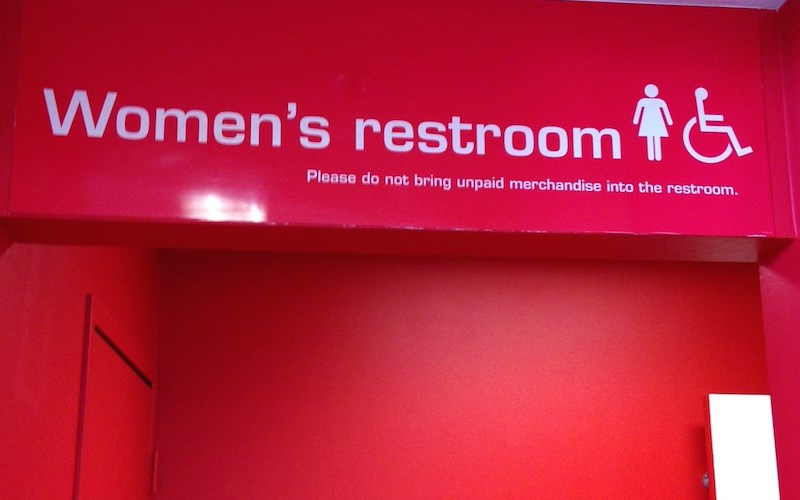I know some of you (perhaps including my husband) just gasped in audible shock and horror, and others might be Googling the number for CPS on their phone while they continue reading. It was stressful for me, too. I stood right outside the women’s restroom sign with our red plastic cart and her toddler brother (who was already eating the cheese sticks we’d just purchased two seconds prior), and I let her go for it. By herself. Without me.
When I peeked in at her (okay, I caved), she was wiping her hands dry, a mountainous pile of surely no less than 15 brown paper towels mounding on top of the trashcan beneath her. She smiled, and said, “Mommy, you don’t need to check on me. I am doing just fiiiiiine.”
And she was.
Independence is important. And it’s a skill that’s built over the entirety of one’s young life through early adulthood. The earlier we build our belief in our own ability to do things (known in the psychology world as self-efficacy), the more successful we become. Or at least so says the research laid out in the book I’m presently reading called The Self-Driven Child, by William Stixrud and Ned Johnson.
The book details an issue all too familiar to college admissions professionals and undergraduate freshman professors. A couple pages in, there’s this: “From 1960 until 2002, high school and college students have steadily reported lower and lower levels of internal locus of control (the belief that they can control their own destiny) and higher levels of external locus of control (the belief that their destiny is determined by external forces). This change has been associated with an increased vulnerability to anxiety and depression. In fact, adolescents and young adults today are five to eight times more likely to experience the symptoms of an anxiety disorder than young people were at earlier times, including during the Great Depression, World War II, and the cold war. Are things really harder now than they were during the Depression? Or are we doing something that is dampening their natural coping mechanisms?"
But, it’s harder to get into college these days, right?
Nope. Seventy percent of colleges admit seventy percent or more of their
applicants. These colleges are good colleges that admit students who go on to to be wildly successful. More correlated with your future success in life than the “networking potential” of your alma mater, or the average income upon graduation, or the engineering ranking in US News and World Report are the skills of the individual student, independence and efficacy being some of the most important.
There’s a terrible cycle at work here. We are fed the belief that becoming successful in life is harder than ever. We want our kids to be successful, so we sometimes operate with an “at all costs” mindset to provide them every opportunity. In reality, what we are doing is leeching control away from them. Yes, mom and dad would do the project better, but it robs the child of the pride of ownership. Yes, if we hold their hand up the ladder on the playground they won’t get hurt. But they also won’t learn as quickly their own physical limits. Yes, if you keep your high schooler’s schedule for them they won’t miss appointments and will be on time (important things!), but they also won’t learn (sometimes the hard way) how to get themselves there and the consequences of not doing so.
Inevitably, at some point, our kids are going to be in full control of their lives. So many young adults are not at the level of independence they need to be by the time they are flung into a residence hall the next state over, and this worsens not only their beginning college experience but their likelihood for college completion ,and even, according to the research by Stixrud and Johnson, their lifetime potential for success.
I believe that scary (for me) trips into the Target bathroom lead to her reading books solo, doing poster board projects and science fairs using the germinations born of her own ideas, feeling confident in keeping a schedule all her own, building healthy mentoring relationships outside of those with us as her parents, and finally on to a lifetime of really cool things because she will have learned she can (or she can at least try and see what happens).
So let them go solo. Let them write their own essay. Let them be responsible for doing their laundry and making that appointment with the dentist. As parents, we have to continuously evaluate how much we are letting and encouraging our kids to take control of their lives. They will be better for it (and so, in the long run, will you when they are amazing and fulfilled adults.)

 RSS Feed
RSS Feed
